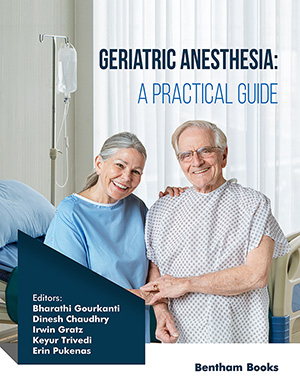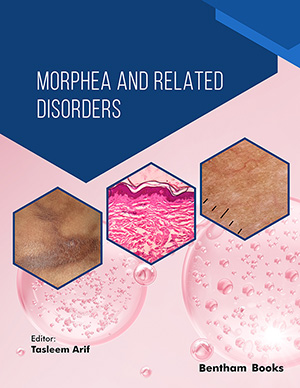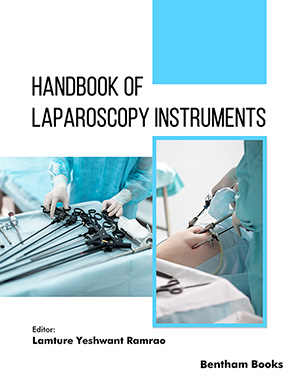Abstract
Partly because of its antioxidant and anti-inflammatory properties, cocoa flavanols have been examined in reversing age-related cognitive deficits. Epidemiological studies indicate a relation between flavonoid intake and the prevention of dementia. In confirmation of this relation, several pharmacological studies show the faster speed of responding and better executive performance in flavanol-treated aged or young subjects. The lack of any effect appears in some studies, especially in young subjects, perhaps due to the use of groups with high educational levels and the possibility of a ceiling effect. In several studies, neuropsychological ameliorations were followed by increases in cerebral blood flow. These results are in line with those of animal experimentation since improvements have been found in motor and spatial performances of young and aging mice or rats as well as animal models of Alzheimer’s disease and Parkinson’s disease. Improvements are also reported in biologic markers of Alzheimer’s disease, in particular an increase in soluble Aβ and a decrease in tau hyperphosphorylation.
Keywords: Flavonoids, flavanols, executive functions, reaction time, memory, cerebral blood flow.
[http://dx.doi.org/10.1155/2013/162750] [PMID: 24470791]
[http://dx.doi.org/10.1017/jns.2016.41] [PMID: 28620474]
[http://dx.doi.org/10.1016/j.ejphar.2006.06.025] [PMID: 16904103]
[http://dx.doi.org/10.1146/annurev.nutr.22.111401.144957] [PMID: 12055336]
[http://dx.doi.org/10.1039/C9FO02762A] [PMID: 31932823]
[http://dx.doi.org/10.1016/j.foodchem.2003.08.026]
[http://dx.doi.org/10.1007/s00213-019-5172-0] [PMID: 30706099]
[http://dx.doi.org/10.1016/j.fct.2021.112121] [PMID: 33722594]
[http://dx.doi.org/10.1055/a-0588-5534] [PMID: 29539647]
[http://dx.doi.org/10.1146/annurev-nutr-071811-150642] [PMID: 23642199]
[http://dx.doi.org/10.1089/ars.2010.3697] [PMID: 21470061]
[http://dx.doi.org/10.1111/j.1365-2125.2012.04378.x] [PMID: 22775434]
[http://dx.doi.org/10.1097/00005344-200606001-00010] [PMID: 16794453]
[http://dx.doi.org/10.1016/j.mam.2011.10.016] [PMID: 22107709]
[http://dx.doi.org/10.3390/nu10080986] [PMID: 30060538]
[http://dx.doi.org/10.1097/00005344-200606001-00019] [PMID: 16794462]
[http://dx.doi.org/10.3945/jn.111.144428] [PMID: 22090468]
[http://dx.doi.org/10.1093/aje/kwm036] [PMID: 17369607]
[http://dx.doi.org/10.1023/A:1007614613771] [PMID: 10959944]
[http://dx.doi.org/10.3390/nu12123682] [PMID: 33260315]
[http://dx.doi.org/10.3390/medicina55050156] [PMID: 31108983]
[http://dx.doi.org/10.3233/JAD-160142] [PMID: 27163823]
[http://dx.doi.org/10.1016/j.appet.2016.02.010] [PMID: 26873453]
[http://dx.doi.org/10.3390/nu10101391] [PMID: 30275380]
[http://dx.doi.org/10.1017/S0007114510005738] [PMID: 21303571]
[http://dx.doi.org/10.1111/jgs.13379] [PMID: 25919574]
[http://dx.doi.org/10.1038/sj.ejcn.1602707] [PMID: 17327862]
[http://dx.doi.org/10.1001/archinternmed.2010.78] [PMID: 20421555]
[http://dx.doi.org/10.1016/j.jad.2006.02.007] [PMID: 16546266]
[http://dx.doi.org/10.1111/nure.12065] [PMID: 24117885]
[http://dx.doi.org/10.3945/ajcn.114.092189] [PMID: 25733639]
[http://dx.doi.org/10.1038/nn.3850] [PMID: 25344629]
[http://dx.doi.org/10.1038/s41598-021-83370-2] [PMID: 33589674]
[http://dx.doi.org/10.1212/WNL.0b013e3182a351aa] [PMID: 23925758]
[http://dx.doi.org/10.1080/1028415X.2020.1840119] [PMID: 33190575]
[http://dx.doi.org/10.3233/NHA-1615] [PMID: 28035345]
[http://dx.doi.org/10.1093/gerona/glz107] [PMID: 31056655]
[http://dx.doi.org/10.1016/j.exger.2020.110933] [PMID: 32229139]
[http://dx.doi.org/10.1093/ajcn/87.4.872] [PMID: 18400709]
[http://dx.doi.org/10.1177/0269881112473791] [PMID: 23364814]
[http://dx.doi.org/10.3945/jn.117.250225] [PMID: 28794213]
[PMID: 18728792]
[http://dx.doi.org/10.7863/jum.2010.29.7.1017] [PMID: 20587424]
[http://dx.doi.org/10.1007/s00213-015-3972-4] [PMID: 26047963]
[http://dx.doi.org/10.1161/HYPERTENSIONAHA.112.193060] [PMID: 22892813]
[http://dx.doi.org/10.1007/s00213-019-05306-z] [PMID: 31236643]
[http://dx.doi.org/10.1161/CIRCRESAHA.119.315600] [PMID: 32078436]
[http://dx.doi.org/10.3390/nu14010001] [PMID: 35010877]
[http://dx.doi.org/10.1007/s00213-018-4861-4] [PMID: 29502273]
[http://dx.doi.org/10.1177/0269881109106923] [PMID: 19942640]
[http://dx.doi.org/10.3389/fphar.2015.00093] [PMID: 26042037]
[http://dx.doi.org/10.1016/j.physbeh.2011.02.013] [PMID: 21324330]
[http://dx.doi.org/10.3390/nu11112800] [PMID: 31744119]
[http://dx.doi.org/10.1017/S000711451600430X] [PMID: 28091350]
[http://dx.doi.org/10.1038/s41598-020-76160-9] [PMID: 33235219]
[http://dx.doi.org/10.1097/HJH.0000000000000926] [PMID: 27088635]
[http://dx.doi.org/10.1007/s00394-021-02767-x] [PMID: 35031887]
[http://dx.doi.org/10.1016/j.physbeh.2011.11.013] [PMID: 22120044]
[http://dx.doi.org/10.1097/00005344-200606001-00018] [PMID: 16794461]
[http://dx.doi.org/10.1139/apnm-2016-0245] [PMID: 27849355]
[http://dx.doi.org/10.1007/s11130-019-00779-x] [PMID: 31933112]
[http://dx.doi.org/10.3233/BPL-200111] [PMID: 33782647]
[http://dx.doi.org/10.3390/nu13092909] [PMID: 34578786]
[http://dx.doi.org/10.1016/j.pharmthera.2021.108013] [PMID: 34624428]
[http://dx.doi.org/10.1016/j.appet.2007.05.004] [PMID: 17597253]
[http://dx.doi.org/10.1152/japplphysiol.00055.2018] [PMID: 29543135]
[http://dx.doi.org/10.1097/00005344-200606001-00017] [PMID: 16794460]
[http://dx.doi.org/10.1073/pnas.0510168103] [PMID: 16418281]
[http://dx.doi.org/10.3390/nu12123691] [PMID: 33265948]
[PMID: 19079672]
[http://dx.doi.org/10.1007/s13668-013-0058-y]
[http://dx.doi.org/10.3389/fnut.2017.00019] [PMID: 28560212]
[http://dx.doi.org/10.3389/fnagi.2021.640381] [PMID: 34539375]
[http://dx.doi.org/10.1016/j.neubiorev.2013.06.013] [PMID: 23810791]
[http://dx.doi.org/10.1016/j.fbio.2020.100710] [PMID: 32953444]
[http://dx.doi.org/10.18632/aging.203336] [PMID: 34319911]
[http://dx.doi.org/10.1017/S0007114507886375] [PMID: 18179729]
[http://dx.doi.org/10.1371/journal.pone.0063535] [PMID: 23723987]
[http://dx.doi.org/10.3109/19390211.2015.1108946] [PMID: 26673833]
[http://dx.doi.org/10.3390/nu13072232] [PMID: 34209677]
[http://dx.doi.org/10.1007/s11064-005-6967-4] [PMID: 16187227]
[http://dx.doi.org/10.1007/s11356-021-18165-z] [PMID: 35067880]
[http://dx.doi.org/10.1126/science.274.5284.99] [PMID: 8810256]
[http://dx.doi.org/10.1016/j.bbr.2011.11.014] [PMID: 22119712]
[http://dx.doi.org/10.1039/C5FO00052A] [PMID: 25756794]
[http://dx.doi.org/10.1038/s41598-021-96800-y] [PMID: 34504131]
[http://dx.doi.org/10.3233/JAD-132231] [PMID: 24957018]
[http://dx.doi.org/10.1002/jcb.24548] [PMID: 23554028]
[http://dx.doi.org/10.1039/D0FO02438D] [PMID: 33201160]
[http://dx.doi.org/10.3389/fnagi.2019.00155] [PMID: 31293414]
[http://dx.doi.org/10.1016/j.freeradbiomed.2011.09.010] [PMID: 21982844]
[http://dx.doi.org/10.1007/s10787-021-00895-8] [PMID: 35031904]
[http://dx.doi.org/10.1016/j.lfs.2016.07.021] [PMID: 27493077]
[http://dx.doi.org/10.1007/s12035-012-8282-9] [PMID: 22706880]
[http://dx.doi.org/10.1016/j.abb.2009.10.003] [PMID: 19822127]
[http://dx.doi.org/10.1007/s12263-008-0091-4] [PMID: 18937002]
[http://dx.doi.org/10.1007/978-3-319-18365-7_6] [PMID: 26092629]
[http://dx.doi.org/10.1089/jmf.2017.4078] [PMID: 29412767]
[http://dx.doi.org/10.2174/1871527315666160202125519] [PMID: 26831259]
[http://dx.doi.org/10.1089/rej.2014.1639] [PMID: 25625827]
[http://dx.doi.org/10.1007/s00415-009-0118-9] [PMID: 19277767]
[http://dx.doi.org/10.1016/j.neubiorev.2004.06.006] [PMID: 15465137]
[http://dx.doi.org/10.1016/S0149-7634(01)00041-0] [PMID: 11835987]
[http://dx.doi.org/10.1080/0361073X.2021.1959823] [PMID: 34384037]
[http://dx.doi.org/10.1080/07315724.2007.10719621] [PMID: 17906186]
[http://dx.doi.org/10.1016/j.pbb.2013.05.012] [PMID: 23714698]
[http://dx.doi.org/10.1155/2015/276039] [PMID: 26301040]
[http://dx.doi.org/10.1080/1028415X.2018.1521088] [PMID: 30207204]
[http://dx.doi.org/10.3945/jn.117.255034] [PMID: 28835392]
[http://dx.doi.org/10.1016/S0161-813X(02)00079-7] [PMID: 12387363]
[http://dx.doi.org/10.1046/j.1471-4159.2001.00490.x] [PMID: 11553681]
[http://dx.doi.org/10.3892/mmr.2018.8470] [PMID: 29363729]
[http://dx.doi.org/10.1007/s11064-016-1995-9] [PMID: 27364962]
[http://dx.doi.org/10.1007/s12640-019-00143-6] [PMID: 31811588]
[http://dx.doi.org/10.1007/s12640-012-9332-9] [PMID: 22669749]
[http://dx.doi.org/10.1016/j.neuroscience.2014.12.003] [PMID: 25498223]
[http://dx.doi.org/10.2174/1874609812666191023153724] [PMID: 31702498]
[http://dx.doi.org/10.1038/tp.2014.135] [PMID: 25562843]
[http://dx.doi.org/10.1179/147683008X344165] [PMID: 19000380]
[http://dx.doi.org/10.1016/j.exger.2017.07.010] [PMID: 28807824]
[http://dx.doi.org/10.1111/j.1750-3841.2007.00297.x] [PMID: 17995815]
[http://dx.doi.org/10.1523/JNEUROSCI.0914-07.2007] [PMID: 17537957]
[http://dx.doi.org/10.1007/s12263-009-0137-2] [PMID: 19727888]
[http://dx.doi.org/10.1242/jeb.070300] [PMID: 23014569]
[http://dx.doi.org/10.1242/jeb.130765] [PMID: 26823103]































